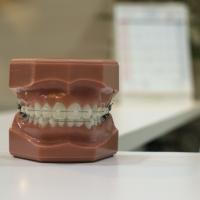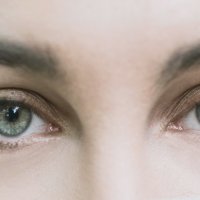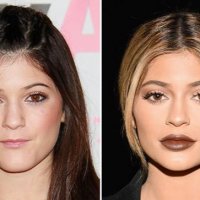The Connection Between Looking Good and Feeling Good
The following is adapted from You're Not a Vanity Purchase.
“Beauty is only skin deep,” they say. “It’s what’s on the inside that matters.” It’s a nice sentiment, but it doesn’t always play out in reality.
Think back to being a teenager. Did you ever have a monster zit, one so big it seemed like the whole world was staring at it? Did it affect your confidence and how you acted that day?
You probably felt self-conscious. Maybe you didn’t talk to your friends as much, and you definitely avoided engaging with any potential romantic interests. Maybe you declined a couple of dates until after it was gone. When your skin cleared up, your self-confidence miraculously returned. You felt lighter and willing to see and be seen.
There is an undeniable connection between how we look and how we feel. As a facial plastic surgeon, I understand this truth deeply, because I see how much a physical change can transform my patients’ entire lives, mentally and emotionally.
We criticize people for caring too much about their appearance, especially if they spend money to change it, but sometimes, the key to feeling our best is looking our best. There are actually biological reasons for why looking good leads to feeling good.
Our Self-Image is Largely External
As humans, the very notion of who we are, our so-called “self-image,” develops early in life. Our self-image influences greatly how we feel about ourselves, and it’s largely based on the feedback we get about ourselves from the world around us.
Humans are intensely social beings. In contrast to other species, a large part of our brain is dedicated to processing social information. In fact, scientists have even posited in the “social brain theory” that this may be the reason we have larger brains than other species. The brain size of the great ape species closest in evolution to humans (such as chimpanzees and bonobos), for example, is only 25 to 35 percent of modern human brain size.
Further evidence of this theory is apparent in the way the human brain grows. The newborn human brain is only 25 percent of its adult volume as opposed to 50–70 percent in newborn apes. The rapid growth of the human brain in the first few years of life corresponds to the period of most rapid social development. We form families, tribes, cities, countries, and relate to the world around us through the prism of our social network.
Because relationships and social bonds are so important to us as a species, it is natural that we define ourselves based on how others perceive us. At a very young age (before about two years old), we don’t recognize ourselves in a mirror, so our main input on who we are—our self-image—is how others react to us. The earliest input we get is from our parents. The “oohing” and “ahhing” in infancy, hopefully from loving parents, helps to create a positive self-image for most of us.
As we get older, we get plenty of input from others in every social interaction we have—and much of that input is based on our physical appearance.
Humans Are Visual Creatures
In addition to being highly social, human beings are also intensely visual creatures. This means we pay a good deal of attention to physical appearances, which ends up influencing our self-image.
Physically, we are hardwired to focus on visual information. In the brain, there are hundreds of millions of neurons (brain cells) devoted to visual processing. Neurons dedicated to vision make up about 30 percent of the cortex, as compared to only 8 percent for touch and 3 percent for hearing. Each of the two optic nerves, which carry signals from the retina to the brain, consist of a million fibers, while each auditory nerve carries a mere thirty thousand.
Because we are so attuned to the visual, physical appearance tends to impact how we interact with others. Nowhere do people feel more comfortable offering input on physical image or appearance than with babies or children. “Oh, he looks just like his mother,” “Look at those freckles,” “Look at those big cheeks!” “She’s pretty,” “She’s tall, just like her father,” “What a cute little kid!”
Could you imagine us going around making those kinds of comments as adults to people we just met? Somehow with babies or children, a running commentary on physical traits is more acceptable and even invited by parents.
Of course, there is also less flattering input one may hear from the brash, drunk uncle or from kids on the playground: “Look at those big ears; it’s Dumbo, junior!” “He has his father’s nose” (translated: big beak), “She’s very interesting looking” (i.e., homely).
We take in these statements, both good and bad, combine them with our own perceived image, and form a composite self-image. Statements like “I am fat,” “I am beautiful,” “I am short,” “I am smart,” become ingrained in both our conscious and subconscious mind to form a complete mental picture of who we are. That mental picture has a huge effect on our overall mental and emotional well-being.
When We Look Good, We Feel Good
Our view of ourselves—how we feel about how we look, and who we are—was not formed in a vacuum, and does not exist in a vacuum. It is hugely influenced by the feedback we get from others around us, and that feedback is deeply connected to visual information.
Essentially, because we are highly visual, we judge each other based on appearances, and because we are highly social, we care about others’ judgments.
Right or wrong, there is an undeniable connection between looking good and feeling good. So instead of feeling guilty about working on our appearance, why not embrace it? If we know our appearance so deeply affects how we feel about ourselves and how others feel about us, why deny it? Why should you have one moment of guilt when you consider doing something to alter your appearance for the better?
When people make a change, their confidence can soar. They look better, they feel better, and their brain receives positive feedback from others around them. A powerful, positive feedback loop develops, resulting in a massive improvement in self-image and self-confidence.
For more advice on looking good and feeling good, you can find You're Not a Vanity Purchase on Amazon.
Dr. James C. Marotta is a dual-board-certified facial plastic surgeon on Long Island, New York, with degrees from some of the world’s finest institutions, including Columbia and Yale Universities. Dr. Marotta is a fellow of the American Academy of Facial Plastic and Reconstructive Surgery (AAFPRS), and since 2013, he has consistently been named the Best Cosmetic Surgeon on Long Island. Dr. Marotta has appeared in a variety of TV and print media, including Harper’s Bazaar, Huffington Post, and Fox 5 NY. While he is deeply dedicated to his work, family remains the center of Dr. Marotta’s life. He enjoys spending time with his wife and two children, traveling, playing sports, and cooking.
More to Read:
Previous Posts:






